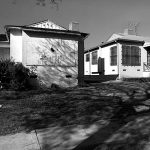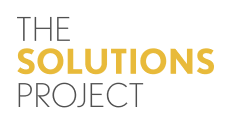 In the past 15 years, South LA’s families and have worked hard to overcome deficiencies in the Los Angeles Unified District 1 school system—deficiencies that have resulted in overcrowded schools, low matriculation rates, and poor college attendance. June’s Los Angeles Unified School District 1 school board election provided us with an historic opportunity to reshape education in our community and to create a moment of reflection on what our students need, where our biggest problems lie, and what the root causes of inequality in our system are.
In the past 15 years, South LA’s families and have worked hard to overcome deficiencies in the Los Angeles Unified District 1 school system—deficiencies that have resulted in overcrowded schools, low matriculation rates, and poor college attendance. June’s Los Angeles Unified School District 1 school board election provided us with an historic opportunity to reshape education in our community and to create a moment of reflection on what our students need, where our biggest problems lie, and what the root causes of inequality in our system are.
That moment continues: While two candidates, George McKenna and Alex Johnson, came out ahead of the five others by a landslide, neither earned the majority required in order to win the election. McKenna received nearly twice the number of votes over Johnson; however, voter turnout was lower than expected. The good news is that we still have time to let our remaining candidates know what we are education priorities are in the coming years.
So, what are those priorities? In the past few months, we’ve been talking a lot about what matters most to us in the plan to reform our schools, and why this school board election is so important. On May 7, four candidates vying for that seat listened to what we had to say, and then presented their education priorities to the residents of South LA in a Q & A-style forum at the A.M.E. Ward Church in Los Angeles’ Pico Union neighborhood. Moderated by Ange-Marie Hancock, associate professor of political science and gender studies at the University of Southern California, the debate focused on three topics: how the distribution of funding and resources affects school performance; decriminalizing students by improving school climate; and making sure students are prepared to succeed in the 21st century.
In just under two hours of conversation, our candidates heard important messages about the experiences of teachers, students, administrators, and parents. And we were able to gauge how they are poised to take on those messages, and convert them into real action for our community. We wanted to know how they would make closing the achievement gap a top priority throughout our schools. We also wanted to know what steps our candidates would take to help teachers improve their practice, learn new skills, and be optimally prepared to meet the needs of diverse students.
Two of our community partners, Community Coalition and Inner City Struggle, have worked with The Advancement Project—a think tank focusing on creating equity in public education—to rank which schools are struggling the most financially using a gauge called the Student Need Index. This gauge determines whether or not a school meets the criteria for additional funding based on the Local Control Funding Formula. The LCFF takes into account students’ classroom performance through traditional measures such as test scores, dropout rates, and number of suspensions. But the formula also considers the quality of life and conditions of neighborhoods when determining whether or not a school in is need of extra help. These conditions include exposure to violence, access to other community resources such as youth programs, early care, and access to healthcare.
We were happy to see that our school board candidates are eager to vote “yes” to implementing such a useful tool that would inform our decision-makers in the most robust way possible before allocating funding to individual schools. We were also happy to hear that arts education and vocational programs are another top priority for some of our runners. And that our potential leaders want to improve school climates so that students are offered the support they need in order to combat absenteeism, instead of being criminalized by local law enforcement.
But now our top priority is this: In the coming weeks before the LAUSD run-off election, let’s learn more about what our two remaining candidates represent. Let’s dig deeper into the root causes of poor school performance. And let’s develop the tools we need in order to become informed, active members of our community who aren’t simply waiting for the quality of public education in South LA to improve on its own.












